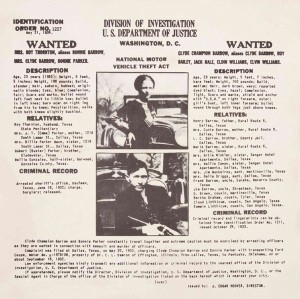 Perhaps one of the most fascinating aspects of the human mind is our ability to seemingly rationalize anything. The Holocaust, The Aral Sea, Watergate, Eugenics, Residential Schooling (and believe me folks, I’m just scratching the iceberg here) – they all “seemed” like “good” ideas at the time. Or perhaps, our resistance to change even when slapped in the face with more than compelling objective evidence trumps the former. For example, can anyone sincerely give me a non-bias legitimate reason as to why we re-elected Bush or why many of us continue to stuff our bodies with toxic foods and substances even after we’ve had near brushes with death from doing just that?
Perhaps one of the most fascinating aspects of the human mind is our ability to seemingly rationalize anything. The Holocaust, The Aral Sea, Watergate, Eugenics, Residential Schooling (and believe me folks, I’m just scratching the iceberg here) – they all “seemed” like “good” ideas at the time. Or perhaps, our resistance to change even when slapped in the face with more than compelling objective evidence trumps the former. For example, can anyone sincerely give me a non-bias legitimate reason as to why we re-elected Bush or why many of us continue to stuff our bodies with toxic foods and substances even after we’ve had near brushes with death from doing just that?
Don’t get me wrong – I’m NOT anti-human nor do I think that would even be possible considering I’m too part of this species, genetically-speaking. The problem I have however is that I find it very difficult to swallow the fact that we are supposedly “superior” in terms of our intellectual makeup when time and time again, we not only commit the most preventable (and often plain stupid) of errors, but further we act in ways unquestionably detrimental to our very existence. And for what? A little extra green in the bank? To undermine the work of others in order to get ahead (again read as: money)? To try and combat one’s own personal self-esteem issues and failings through juvenile name-calling and domination tactics? To what end? Why such a need to control? Why such a superiority complex? Why do we go out of our way to live an adversarial existence instead of in harmony with ourselves, our planet, and all of the wonderful things we have to be grateful for?
In the end, it comes down to this: if we still lived in the wild and had to fend for ourselves against the elements and nature’s other inhabitants, as well as gather sustenance through our own accord, I can assure you that it’d be US who were on the verge of extinction. So again I ask you, how is it that we are the more intellectual of creatures? Yes, we’ve created a great number of tools and technological devices to aid in our survival, but in turn we’ve also created diseases, weapons of mass destruction, environmental degradation (which WILL kill us off if it’s not culled sooner as opposed to later), HATE, WAR, exploitation, slavery, rape, unwarranted violence (ie: not a means of self-defence), and WORSE many of these aforementioned creations have now become a form of amusement for many through media. For the more sensitive or perhaps apathetic, we’ve also got drugs and mind-numbing entertainment pursuits to escape into our own selfish existences and be blinded from all of the pain, suffering, and agony that we continue to reap onto this world.
On the other side of things, in the animal kingdom and even our own humble beginnings, conflict was/is justifiable: it’s inherently based on limited resources whether we’ve talking food, shelter or mates OR distinctive/outright threat (ie: a means of self/group-preservation). There is a sense of kinship to protect one’s own and a sense of duty and honour to sacrifice oneself if it means it’ll save one’s offspring or “pack”. There is an understanding of living in harmony with the natural world and never taking more than one’s entitled share. There is a deep connection with the forces so that disaster planning and evacuation can be well-executed without privileging certain groups over others; if certain groups appear “privileged”, it’s merely a symptom of natural selection as opposed to the preservation of certain classes, religions, races etc. Every member of a pack is expected to pull its own weight and praise isn’t given to some over others as such a concept would lead to divisiveness and therefore put the health and safety of the group at risk. Because motivation is “other-oriented”, there isn’t time or tolerance for corruption, cheating, lying, stealing or other self-serving malicious intent. There’s no need for an established legal system as society itself is self-monitoring. Actions are primarily based on the simple instinct to survive. One species doesn’t flourish to the detriment of another: there is room for predator and prey, flora and fauna, microscopic and giant.
There is a human social structure equivalent to what I’ve described above and it goes by the “evil” (as propaganda would have you believe) names socialism and/or communism. Call me old-fashioned but I really do believe we could learn a thing or two from our Neanderthal brothers and sisters…not to mention the REAL world. The natural world is after all the only one that truly matters.
Throw away socially-constructed differences. Throw away money. Throw away Ipods. Throw away corporate conglomerates. We can and have in fact survived without all of these things for some time. Throw away oxygen, fresh water, food and shelter – I can’t see us getting very far.









You must be logged in to post a comment.